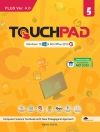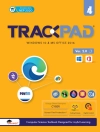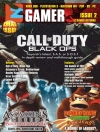This book establishes game-theoretical frameworks based on the mechanism design theory and proposes strategy-proof algorithms, to optimally allocate and price the related Io T services, so that the social welfare of Io T ecosystem or the service provider’s revenue can be maximized and the Io T service provision can be sustainable. This book is written by experts based on the recent research results on the interaction between the service providers and users in the Io T system. Since the Io T networks are essentially supported by data, communication, and computing resources, the book focuses on three representative Io T services, including the data analytics services, the cloud/fog computing services for blockchain networks, and the wireless powered data crowdsourcing services. Researchers, scientists, and engineers in the field of resource allocation and service management for future Io T ecosystem can benefit from the book. As such, this book provides valuable insights and practical methods, especially the novel deep learning-based mechanism that can be considered in the emerging Io T technology.
Table des matières
Chapter1. Introduction.- Chapter2. Literature Review.- Chapter 3. Profit Maximization Mechanism and Data Management for Data Analytics Services.- Chapter 4. Auction Mechanisms in Cloud/Fog Computing Resource Allocation for Public Blockchain Networks.- Chapter 5. Mechanism Design for Wireless Powered Spatial Crowdsourcing Networks.- Chapter 6. Summary and Future Work.
A propos de l’auteur
Yutao Jiao received the Ph.D. degree in computer science and engineering from Nanyang Technological University, Singapore, in 2020. He is currently an assistant professor in the College of Communication Engineering, Army Engineering University of PLA, Nanjing, China. His research interests include algorithmic mechanism design, blockchain, distributed machine learning, as well as mobile crowdsourcing in the Internet of Things.
Ping Wang (Senior Member, IEEE) received the Ph.D. degree in electrical engineering from University of Waterloo, Canada, in 2008. Currently, she is an associate professor in the School of Computer Science and Engineering, Nanyang Technological University, Singapore. Her current research interests include resource allocation in multimedia wireless networks, cloud computing, and smart grid. She was a co-recipient of the Best Paper Award from IEEE Wireless Communications and Networking Conference (WCNC) 2012 and IEEE International Conference on Communications (ICC) 2007.
Dusit Niyato (Fellow, IEEE) received the B.E. degree from the King Mongkuk’s Institute of Technology Ladkrabang, Thailand, in 1999, and the Ph.D. degree in electrical and computer engineering from the University of Manitoba, Canada, in 2008. He is currently a professor in the School of Computer Science and Engineering and the School of Physical and Mathematical Sciences, Nanyang Technological University, Singapore. He has published more than 380 technical papers in the area of wireless and mobile networking and is an inventor of four US and German patents. He has authored four books, including “Game Theory in Wireless and Communication Networks: Theory, Models, and Applications” (Cambridge University Press). He won the Best Young Researcher Award of IEEE Communications Society Asia Pacific and the 2011 IEEE Communications Society Fred W. Ellersick Prize Paper Award. He was named the 2017, 2018, and 2019 highly cited researcherin computer science. He is currently serving as a senior editor of IEEE WIRELESS COMMUNICATIONS LETTER, an area editor of the IEEE TRANSACTIONS ON WIRELESS COMMUNICATIONS (Radio Management and Multiple Access) and the IEEE COMMUNICATIONS SURVEYS AND TUTORIALS (Network and Service Management and Green Communication), and an editor of IEEE TRANSACTIONS ON COMMUNICATIONS, an associate editor of the IEEE TRANSACTIONS ON MOBILE COMPUTING, the IEEE TRANSACTIONS ON VEHICULAR TECHNOLOGY, and the IEEE TRANSACTIONS ON COGNITIVE COMMUNICATIONS AND NETWORKING. He was a guest editor of the IEEE JOURNAL ON SELECTED AREAS ON COMMUNICATIONS. He was a distinguished lecturer of the IEEE Communications Society from 2016 to 2017.












